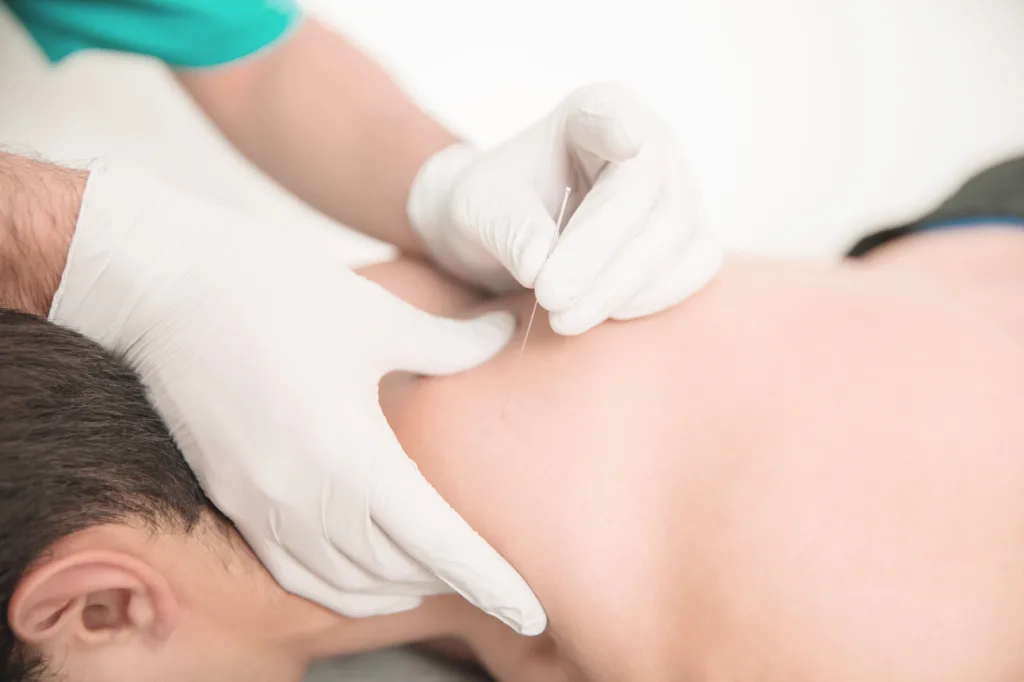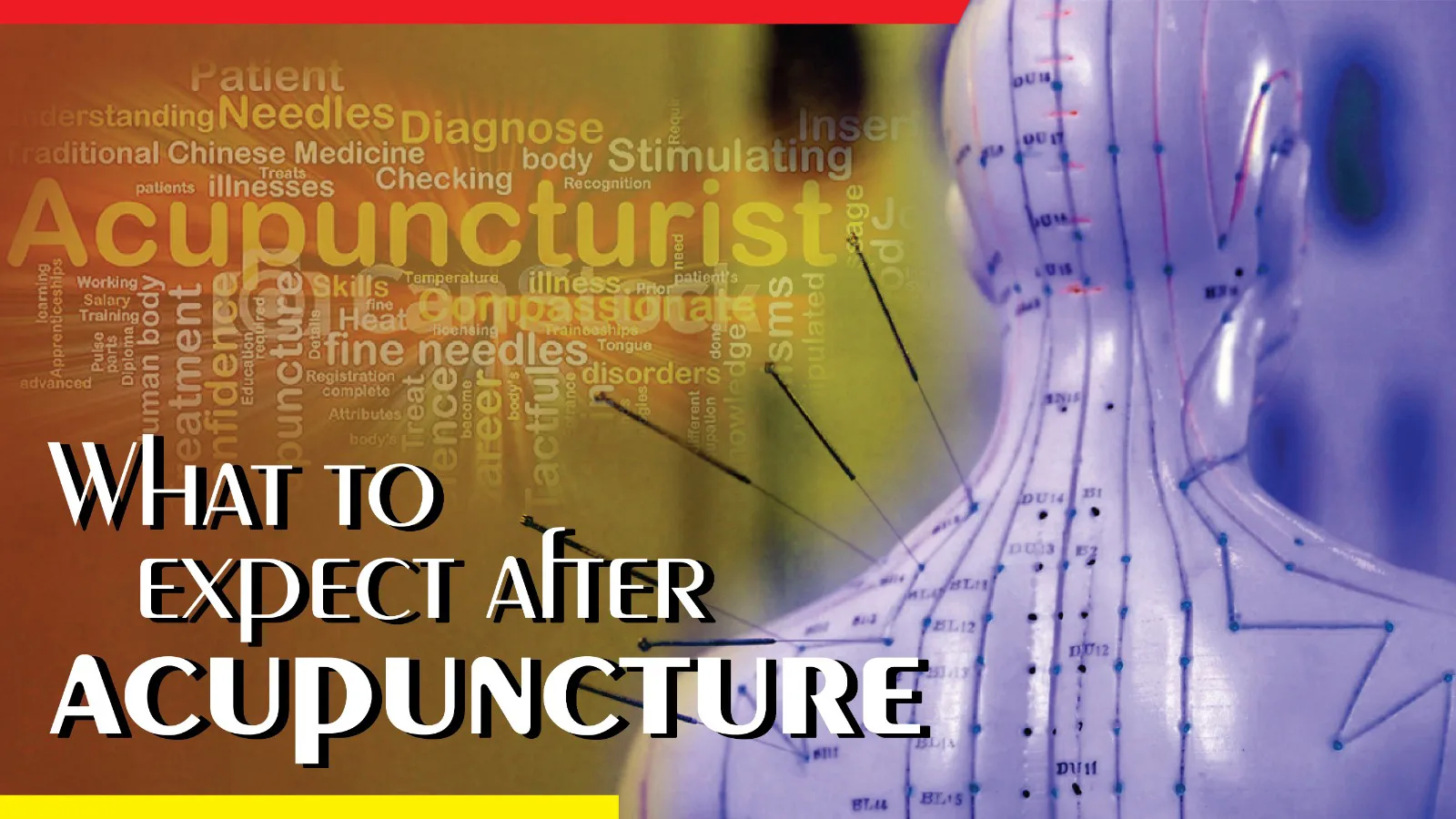The people research and want to find out the alternate, non-pharmaceutical treatment through which they get to heal. Many alternative therapies came from the previous centuries. One of the most profound and effective treatments is known as Acupuncture.
What to expect after Acupuncture is a feeling of deep relaxation, detoxifying sense, bloating, and other bowel diseases relieved and gives an emotionally good and relaxed feel. It is an alternative traditional Chinese medicine technique that has become tremendously popular worldwide.
People get tremendous advantages from these techniques. Let’s explore what Acupuncture is and how it works. What its excellent benefits are. And how you feel after Acupuncture.
Acupuncture versus acupressure:
Word acupuncture is the combination of two words. First, acu means fine needle. Second, puncture means making a small hole at a specific point in a particular region. Treating diseases and pain coupled with stress by balancing the energy and blood of the organs. It is based on the flow of electric current lines called meridians, divided into five zones on the bilateral side of the body.
On the other hand, acupressure means applying pressure through the finer thumb on a specific point to cure diseases by stimulating the nervous system and brain by releasing neuropeptides. In addition, it helps the neurons to communicate with each other. It decreases the sympathetic flow (which causes a flight or fight response) and increases the vagal tone, causing it to produce a non-stressed state.
The increment of vagal tone may benefit cardiac health and the digestive system. Furthermore, it enhances the immune system and relieves pain.
However, acupuncture theory is based on balance, and health comes from vital force, energy, or an organ’s blood by puncturing the acupoints with a fine-sterile needle.
It was first published around 100 BC; the research was going, and officially, Acupuncture was recorded in the mid-14th and 16 centuries. As yet, it is under the topic of study.

How does Acupuncture perform?
Puncturing is done with a single-use fine, sterile needle by a licensed, professional acupuncturist. A trained, experienced acupuncturist performs it.
First, trained staff examined the patient physically. Which therapy was needed before the treatment, either consciousness or sedation?
After applying the alcohol, acupuncture points are punctured with sterile, fine hair-like acupuncture needles. It feels like a slight pricking.
What to expect after acupuncture treatment:
- Research conducted in 2020 shows it has mild to moderate benefits for low back pain. In 2018, research shows it benefits chronic pain, frozen shoulders, arthritis, and other musculoskeletal pain.1
- Acupuncture is the most effective non-pharmaceutical treatment, especially for acute and chronic pain.
- Studies in Neuroscience pages show that Acupuncture has medicinal effects on stress-related issues such as anxiety and depression.
- Research in Autonomic Neuroscience in 2010 concluded that acupuncture is an effective treatment for several GI complaints and other digestive issues.
- Healthline research has found that it lowers stress-related hormones and improves mood. It also helps to reduce feelings of anxiety and, hence, increases feelings of happiness.
- Clinical studies have shown the efficacy of motor function and reduced the symptoms of neurological diseases.
- Research shows that it is effective against acute and chronic low back pain.
- It helps treat headaches, migraines, cervical pain, back pain, and osteoarthritis.
- It increases endorphin production, positive feelings, and mood enhancement.
- It may also give good-quality sleep by producing serotonin hormones (related to sleep cycles); research has been done on animals.
- Balancing the endocrine system and hormones enhances the ovary’s function, sperm quality, and fertility.
- Specific acupuncturist points may help trigger nerve singling, thus helping in reducing inflammation and allergic reactions.
- It also helps produce red blood cells, white blood cells, and T-cells and boosts the immune system.
- It is effective against the neuroendocrine and renin-angiotensin-aldosterone systems; controlling all these is beneficial in preventing high blood pressure.
- It stimulates the central nervous system, which releases chemicals or hormones in the spinal cord, brain, and different regions of the body.
- These biochemical activations promote the natural healing process.
What to expect after acupuncture for sciatica:
Immediate effects after acupuncture for sciatica;
- Reduced pain and inflammation
- Improved mobility
- Temporary muscle soreness
- Mild fatigue
Acupunture’s effects 24-48 hours later:
- Progressive pain relief
- Better sleep (reduce anxiety)
- Increased energy
- Possible mild muscle aches
Multiple sessions are typically needed for lasting relief. Some patients report immediate improvement, while others may need 3-5 treatments to notice significant changes.
Acupuncture side effects first treatment:
Typical adverse effects following initial acupuncture:
Weariness and sluggishness
Mild discomfort at needle sites
minor bruises
Better sleep
A slight headache
Short-term lightheadedness
Effects normally resolve after 24-48 hours. If you are suffering significant discomfort or strange reactions, get in touch with your practitioner.
In addition, the deep puncturing of vital organs results in death. Major haemorrhage or pneumothorax cardiac tamponade may follow2.
Frequently ask a question:
What to expect after acupuncture and cupping?
Acupunture and cupping both have slightly different methods, but common effects after acupuncture and cupping are:
Physical:
- Temporary circular marks from cupping (fade in 3-10 days)
- Muscle soreness
- Fatigue
- Reduced pain/tension
- Improved circulation
Healing responses:
- Initial symptom relief
- Possible mild headache
- Light bruising
- Better sleep
- Increased energy after 24 hours
Aftercare tips:
- Avoid hot showers for 2-3 hours
- Stay hydrated
- Avoid strenuous exercise same day
- Keep cupping marks covered if going in the sun.
What to expect after acupuncture for anxiety?
After acupuncture for anxiety, you may experience:
Immediate effects:
- Feeling calmer and relaxed
- Mild drowsiness
- Reduced muscle tension
- Mental clarity
Next 24-48 hours:
- Improved sleep quality
- Decreased anxiety symptoms
- Better stress response
- Possible temporary fatigue
- Enhanced mood
Some patients notice immediate relief, while others may need 4-6 sessions for significant improvement. If anxiety symptoms worsen or unusual reactions occur beyond 48 hours, contact your practitioner.
What are the disadvantages of Acupuncture?
It is performed by trained professional staff. It doesn’t have severe disadvantages except for soreness and minor bleeding.
When should Acupuncture be avoided?
Acupuncture is avoided in case of any Malignancy. Hence, due to the infection risk, there may be a risk of the spread of neoplastic cells and active infection, particularly cutaneous and severe neutropenia.
How long after Acupuncture expect do you feel better?
You can feel the effects of Acupuncture after 30 minutes of an acupuncture session. The time needed to work depends on the medical condition, type, and acupuncture points.
Is there any contraindication to Acupuncture?
Areas of poor skin condition, Diabetic patients, epilepsy, Hemophilia, or other clotting disorders are relative contraindications to Acupuncture.
Conclusion:
Acupuncture therapy acts as a complementary therapy with pharmaceutical management. It doesn’t affect any treatment or side effects. It should be the component of our treatment for getting the best result in recovery. Research shows that it can potentially impact getting the best results for diseases. You should know how Acupuncture works and its benefits to achieve the best result. What to expect after Acupuncture; I personally had a good experience. Feels lightness, relaxation, and super detoxification feeling achieved. You can explore yourself by adopting this special treatment.




Leave a Reply